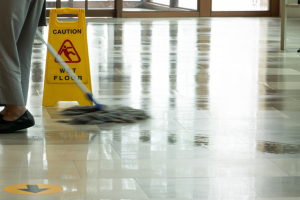Akbar Thomas Resources and Education

New Florida Law Silences Voices And Continues Systemic Racism Across Communities
By Mutaqee Akbar
Fifteen to 20 years from now, the years 2020 and 2021 will be their own chapters in history books.
The discussion in those history books will be just as much about the COVID-19 pandemic as it will be about the peaceful protests against systemic racism and police violence inflicted on minorities in the United States.
Time Magazine’s The Armed Conflict Location & Event Data Project analyzed more than 7,750 Black Lives Matter demonstrations in all 50 states and Washington DC between May 26 and August 22. Of those demonstrations, more than 93 percent were peaceful.
On April 19, Governor Ron DeSantis signed HB 1 into law. The law puts in place sweeping penalties for protestors – even peaceful protestors – and the prohibition of the defacing or destruction of monuments. The puzzling part about this new law is with the majority of protests being peaceful, why do Florida lawmakers believe we need this legislation?
The reality is the policy has far reaching implications that could limit peaceful protests and infringe on free-speech rights. During the legislative session, I testified in several committees and urged lawmakers to carefully consider this legislation the message it was sending as well as the potential it had to continue systemic racism in our communities throughout Florida. The law has lifted provisions that would stop ‘bad actors,’ and instead creates opportunities for authorities to further target and criminalize black and brown people.
A recent Miami Herald editorial lays out the extensive ramifications and obstacles that could stem from the new anti-protest law including how it will affect traditionally peaceful protests against issues such as gun control, social justice and reproductive rights as well as how the law will be fairly enforced. People have the right to protest and the right to free speech. How will this bill be regulated in a way that still leaves room for this freedom of expression?
Florida is currently on the wrong side of history. Our state should be able to say that it is listening to the cries of its citizens and that it is playing a significant role in dismantling racism.
We have to ask – does this new law help Florida cities examine their budgets to see how local law enforcement agencies can be transformed into agencies that focus on keeping citizens safe as opposed to over policing black neighborhoods?
Will this new law prevent instances of excessive force and improve training to ensure we don’t continue to have tragedies like the death of George Floyd?
Will Florida be able to say it looked at its painful racial history, from Rosewood to the Grove to Ocoee to so many other instances, and have found ways to heal from the painful past?
Currently, the answer is no.
Instead, the response by a majority of Florida lawmakers was to stifle the cries of many was HB 1. Will this be the ONLY response to this painful history — a bill that further silences the cries of a historically discriminated, disenfranchised community that is mourning far too many of their brothers and sisters?
Will the state’s only response to the experience of black people when encountering law enforcement, the criminal justice system, the education system, the healthcare system, and in so many other places where everyone else exists comfortably, be this bill?
While this may be true at the moment, it doesn’t have to stay this way. Change can still be made. It cannot and should not stay this way, because we all know Florida can and should do better now and for the future.
Mutaqee Akbar is the founder and managing partner of Akbar Law Firm based in Tallahassee, Florida. He currently serves as the president of the NAACP Tallahassee Chapter.
Supporting articles:
https://www.wctv.tv/2021/04/19/gov-desantis-signs-hb-1-anti-riot-bill/
https://www.miamiherald.com/opinion/op-ed/article250824769.html

